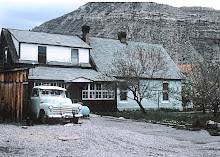GRIEVING
Kathy has told me this story before. This time, we are in a car, driving into Charleston, South Carolina. The five old college roommates, leaving Kiawah Island at the end of a long weekend. Squeezing every last minute of intimacy out of the trip.
She leans forward from the back seat so Julie, who is driving, can hear. Julie is no stranger to tragedy, awaiting her pre-teen daughter’s heart surgery, crossing her fingers the doctor will cure, not kill her. Linda, sitting beside me, has a temporary reprieve. Her ovarian cancer won’t return for four months. Caren, riding shotgun, is healthy. It’s her marriage that’s fallen apart.
Two of us are missing, too. One dead; one in a cult and only dead to the world. But we’re not thinking about them now. We’re on vacation from personal disaster while Kathy tells her tale.
It was years ago, when Kathy and her husband Gregg were camping in Alaska, in Denali National Park. One day, while hiking, other campers stopped them on the trail. Had they seen a moose? Or a bear? Kathy and Gregg hadn’t seen the moose, but kept a lookout. And then, they stumbled across the bear. He was lurking around the edges of the cul de sac where they were camped, blood staining the fur around his mouth.
They weren’t sure what had happened. Had someone said that the moose had a baby? Babies? Or was about to give birth? But what had they said about the bear?
While they debated, the moose lumbered up, bigger and more imposing than they expected. Her earth-pounding steps sent Kathy jumping into the trailer, and Gregg scurrying up the ladder to its roof. As the moose swung around her head, it seemed clear—she was on the hunt for her babes.
So began a dance, for hours. Drawn by some invisible force—the smell of blood? Anguished cries?—the moose ran at the woods, then around the circle at the end of the cul de sac. She’d head toward the grizzly’s lair, then retreat to the campsite, ears pricked up and listening, fur on her back at attention, watching and waiting, and waiting and watching.
But the rangers knew she wouldn’t find her babies alive; the bear had eaten them.
The rangers caucused, decided it was a dangerous situation. Elevated from orange to red, like a homeland security alert. Bears aren’t the only aggressive beasts, Kathy explains. Moose charge, too. Campers could get hurt.
The rangers reached into their cab for weapons. They cocked their guns, as wary of the moose as scared of the bear. The men trekked into the woods on a mission to subdue the grizzly while the moose was at the campsite. All the while, the mother moose kept her anxious vigil: scooting toward the trees, then back to the center of the clearing, eyes and ears alert, hair a-prickle.
Just a short time passed, and then the rangers lugged them out―the two dead baby moose. They threw the corpses into the back of their pickup like slabs of ruined meat while the mother moose watched. At once, her demeanor changed. Her pelt fell flat, her ears drooped. She stopped roaming and stood stock still in the center of the campsite. Motionless, for a good hour. She was frozen, expressionless.
Back in Charleston, Kathy drops her arms and rolls back her eyes, her best imitation of a stunned mother moose. We don’t laugh.
She says that’s how it went the next day, too. Kathy and Gregg woke to find the moose unmoved. In mourning. Too grief-stricken to leave the scene of the murder.
Kathy falls back in her seat. She looks around the car for a word to express the moose’s sorrow. She gives up, resorts to a phrase out of our shared past.
“Well,” she says, “that moose, she was totally bummed out.”
There are no bleak-enough words for that kind of despair.
We ride in hushed assent, staring at the maze of roadways in the distance. We can’t see the potholes and collisions that will rattle our lives in the miles ahead.
Tuesday, May 30, 2006
Subscribe to:
Post Comments (Atom)


1 comment:
Geez, Gail, this is an amazing story, affects the reader all through the body.
Post a Comment